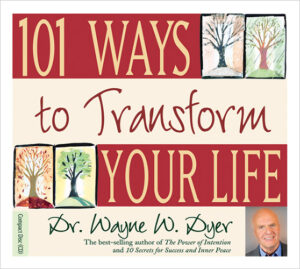In our fast-paced world, the decisions we make daily significantly impact our lives. From minor choices like what to eat for breakfast to major decisions such as career changes, every choice shapes our future. This article delves into proven strategies that can help you make better decisions, ultimately transforming your life.
1. Understand the Importance of Decision-Making
Decision-making is a critical skill that influences our personal and professional lives. Understanding the weight of each decision is the first step toward making better choices. Acknowledging that every decision, no matter how small, can have long-term consequences will encourage you to approach each one with careful consideration.
Impact on Personal Life
Decisions in your personal life, such as your health habits, relationships, and time management, directly affect your well-being and happiness. For instance, choosing to exercise regularly and eat healthily can lead to a longer, more fulfilling life.
Impact on Professional Life
In your professional life, decisions regarding career moves, project management, and workplace relationships can determine your career trajectory. Effective decision-making can lead to career advancement and job satisfaction.
2. Set Clear Goals and Priorities
Having clear goals and priorities can guide your decision-making process. When you know what you want to achieve, it’s easier to make choices that align with your objectives.
Define Your Goals
Start by defining both short-term and long-term goals. Short-term goals might include completing a specific project or improving a particular skill, while long-term goals could involve career advancement or financial independence.
Prioritize Your Goals
Once your goals are set, prioritize them based on importance and urgency. This prioritization helps you focus on what matters most, ensuring that your decisions contribute to achieving your primary objectives.
3. Gather Relevant Information
Making informed decisions requires gathering all relevant information. This step involves researching, seeking advice, and considering different perspectives.
Research Thoroughly
Conduct thorough research to understand all aspects of the decision at hand. For example, if you’re considering a new job, research the company’s culture, growth opportunities, and employee reviews.
Seek Expert Advice
Consulting with experts or experienced individuals can provide valuable insights. Their advice can help you avoid common pitfalls and make more informed choices.
Consider Multiple Perspectives
Evaluating different perspectives ensures a well-rounded understanding of the situation. Discussing your options with friends, family, or colleagues can reveal aspects you might not have considered.
4. Weigh the Pros and Cons
Creating a pros and cons list can help clarify the potential outcomes of your decisions. This simple yet effective tool allows you to visualize the advantages and disadvantages, making it easier to compare options.
Identify Potential Outcomes
List the potential positive and negative outcomes of each choice. Consider both short-term and long-term effects to ensure a comprehensive evaluation.
Evaluate Risks and Rewards
Assess the risks and rewards associated with each option. High-risk decisions may offer significant rewards, but they also come with potential downsides. Balancing these factors can help you choose the most beneficial option.
5. Trust Your Instincts
While it’s essential to rely on logic and information, trusting your instincts can also play a crucial role in decision-making. Your gut feelings are often based on subconscious knowledge and experiences.
Listen to Your Inner Voice
Pay attention to your initial reactions and feelings about a decision. If something doesn’t feel right, it might be worth reconsidering.
Balance Intuition and Rationality
Striking a balance between intuition and rationality ensures well-rounded decisions. Use your instincts to guide you, but back them up with solid information and analysis.
6. Practice Patience
Rushed decisions often lead to mistakes. Taking your time allows you to evaluate all factors thoroughly and make more thoughtful choices.
Avoid Impulsive Decisions
Impulse decisions can lead to regret. Whenever possible, take a step back and give yourself time to think things through.
Allow for Reflection
Reflecting on past decisions can provide valuable lessons for future choices. Consider what worked well and what didn’t, and apply those insights to your current decision-making process.
7. Learn from Mistakes
Everyone makes mistakes, but learning from them is crucial for personal growth and better decision-making.
Acknowledge Mistakes
Accepting that you’ve made a mistake is the first step toward learning from it. Denial only hinders progress and growth.
Analyze and Adapt
Analyze what went wrong and why. Adapt your strategies and approaches based on these insights to avoid repeating the same errors.
Conclusion
Transforming your everyday decisions with these proven strategies can lead to significant improvements in your life. By understanding the importance of decision-making, setting clear goals, gathering relevant information, weighing pros and cons, trusting your instincts, practicing patience, and learning from mistakes, you can make better choices that align with your personal and professional aspirations.


